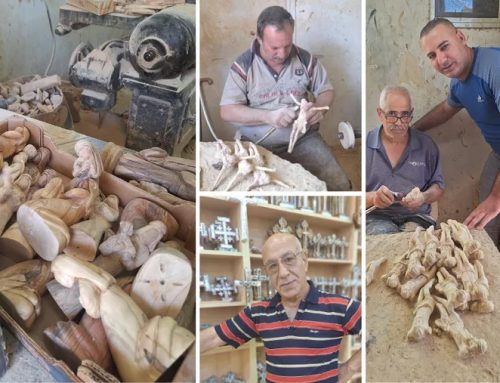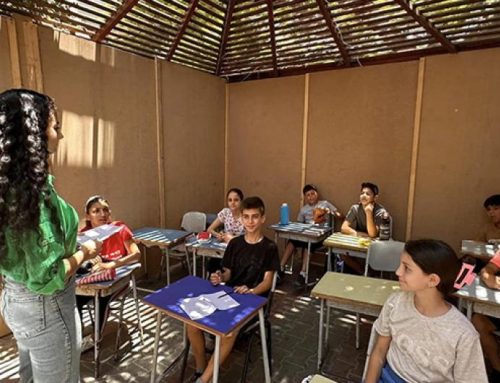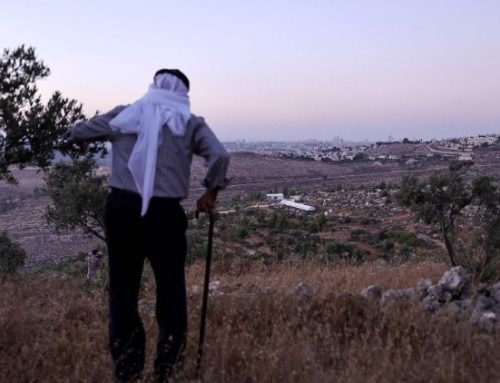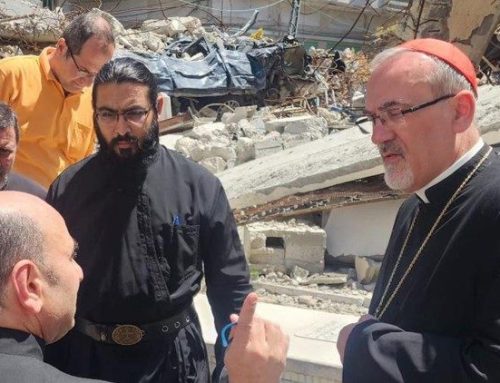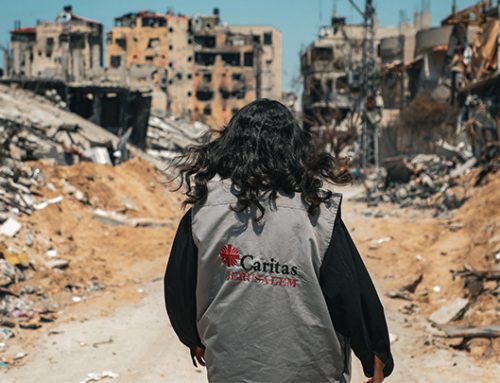Sara, Roberta, Chiara and Morgane landed on the 6th of August in Jerusalem for one year of Civil Service with the Associazione Pro Terra Sancta. They will all be involved in projects revolving around the Israeli-Palestinian area. After some difficulties and delays due to the pandemic, the girls were able to start their journey to support the Association’s activities. The challenging beauty of the Holy Land awaits them.
Sara, Roberta and Chiara work five hours a day in our Bethlehem office, monitoring the progress of the projects in which we are involved. “At the moment, I’m working on reports for a renovation project,” Sara explains, referring to the Società Antoniana shelter, which houses an aid project. The sisters are assisting and helping thirty women from Bethlehem who are particularly fragile, either because they are elderly or because they are disabled.
Roberta is supporting the BetWomen project. Roberta says that this project involves “five Bethlehemite women who have learned the trade of dressmaker” and can thus “contribute to the economic support of their families”. She then continues: “I am very impressed by the willpower of the BetWomen. They all have a very hard home life, but their willingness to take risks leads them to overcome obstacles and to be more and more creative”.
Roberta’s task is to design, together with the women supported by Pro Terra Sancta, a new line of products to be produced in view of Christmas, which in Bethlehem is particularly intense. The aim, she says, is to “create an independent and sustainable cooperative”.
Chiara, on the other hand, is in charge of the communication for the Bethlehem project “Dar al Majus”. Within this project, we are working on the creation of a ‘Community Home’, a place where we can promote a new form of hospitality, where pilgrims and tourists can integrate into the life of the local community.
In the afternoon, the three girls working in Bethlehem go to the care centres and work there. They usually visit the ‘Hogar Niño Dios’, where the Sisters of the Incarnate Word take in thirty children with disabilities. The girls are helping to take care of them and they provide animation for them.
It is Chiara who tells us most enthusiastically that “the children and young people at the Hogar Niño Dios have a joy of life and an affection that overwhelms you”. So much so that, she adds, “their constant cheerfulness puts you in a good mood even on the most tiring days”. The centre is a spark of hope for these children, because, as Chiara explains, they “have experienced the abandonment or loss of their parents, the lack of care and love, and have found a new family in this house”. In Bethlehem, the Hogar Niño Dios becomes a home for those who have never had one.
Morgane, who works in Jerusalem, also speaks of hope. “My work”, she says, “consists in organising visits to the Holy Land for small groups of friends or families“: something that, today more than ever, after two years of pandemic paralysis, needs a renewed impetus. This is certainly not lacking in the four protagonists of this Civil Service adventure.
When she talks about her choice in relation to the health situation, Morgane tells us explicitly that, although they are aware that “there are certain precautions to be taken to safeguard people’s health”, all four feel “extremely lucky to have been able to go and live this experience”.
In short, even in the crisis we are going through, doing good is possible. And indeed, “not only is it possible, but it is even more necessary!”
Source: www.proterrasancta.org


